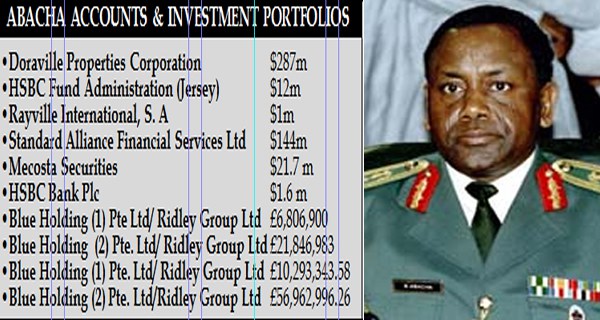The group said this on Sunday, in a statement by its Deputy Director, Timothy Adewale.
According to SERAP, the money which is part of an estimated $2.2 billion looted by the military dictator, to be shared among an estimated 300,000 households, with each getting around $14 (around N5,000) a month “would not bring any tangible benefits to the beneficiaries.”
“The authorities have a legal obligation under the UN Convention against Corruption to which Nigeria is a state party to make sure that the returned Abacha loot is properly and efficiently used, both from the viewpoint of using asset recovery as a tool of ensuring justice to victims of corruption and breaking the cycle of grand corruption.
“But the plan to share the loot among households is mere tokenism and would neither have a significant impact on poverty alleviation nor satisfy the twin objectives of justice and development,” SERAP said.
It, therefore, asked the government to rather than distribute the money among families, invest it in tangible projects that would benefit the poor.
It also advised the government to source funds elsewhere to continue its National Social Safety Net Program (NAASP).
“Rather than spending the loot to fund the National Social Safety Net Program (NAASP), President Buhari should, within the framework of the 1999 Constitution (as amended), create a central recovery account/trust funds, with oversight mechanisms to ensure repatriated funds are transparently and accountably spent to invest in tangible projects that would improve access of those living in poverty to essential public services such as water, education and health.
“Distributing N5,000 to households would neither improve the socio-economic conditions of beneficiaries nor achieve the enduring value of a more transparent and robust system to manage recovered loot.”
It stated further that, “the return of the Abacha loot is a chance for President Buhari to commit to the enforcement of the 2016 judgment by Justice Mohammed Idris, which ordered his government to disclose the spending of recovered loot since 1999 by past and present governments till date, as well as details of projects on which the funds were spent; and to vigorously push the National Assembly to pass the Proceeds of Crime Bill.
“Buhari should make these happen before the next general elections if he is to truly demonstrate his oft-repeated commitment to fight grand corruption.”
SERAP also believes that proper and efficient “spending of returned looted funds offers an opportunity to right wrongs committed by corrupt officials, rebuild public trust, and invest in the development of communities most affected by grand corruption in the country to improve the prospects for meeting many of the Sustainable Development Goals”.
The Federal Government had said that the recovered funds would be disbursed to 302 poor households in 19 states, starting from July as part of its Social Investment Programmes which aim to lift millions of Nigerians out of poverty.
It also said the payment is expected to be done in installments, to avoid logistic obstacles.
The Special Assistant to the President on Justice Reform, Juliet Nwagwu, had, however, said at a news conference in Abuja that the payments won’t be made in cash.
“Nobody is going to give anybody any cash; it is going to be through an electronic payment system which we want CSOs (civil society organisations) to verify,” she said.
Originally deposited in Luxembourg, the $322.5 million was confiscated by a Swiss court in late 2014 and in March 2017, the two states signed an agreement on its repatriation.
CHANNELS
